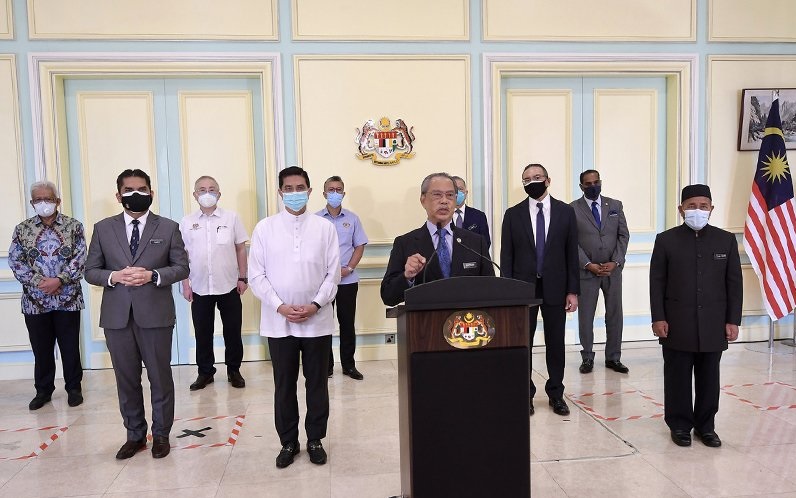2. He offers many institutional reforms (but some only partial) that have been demanded by the opposition and civil society including
(a) equal funding for all MPs (#1)
(b) PM's term limit (#3)
(c) anti-hopping law (#3)
(d) more parliamentary committees with 50% opposition chairpersonship (#4)
(e) implementation of Undi 18 decoupled from Automatic Voters' Registration (#5)
(f) pre-tabling negotiation of bills including budgets with all MPs (#6)
(g) upgrade of Parliamentary Opposition Leader's status to that of senior minister (#7)
3. His main selling point is that the opposition (PH, UMNO, etc) cannot offer an alternative majority.
4. He further promises GE15 latest by next July.
5. Muhyiddin is giving Anwar and Tengku Razaleigh a run for their money with the twin challenges:
(a) to forge a majority;
(b) a better deal of reforms.
The duo cannot just talk about numbers now.
6. In a stroke, Muhyiddin introduces three new changes into Malaysia's politics:
(a) CSA;
(b) Constructive Vote of No Confidence (COVC), although this is just a positioning, not a constitutional provision or convention;
(c) pre-fixed date for election, short of a Fixed Term Parliament.
7. If PH-UMNO can come up with a better offer than Muhyiddin's, then Malaysia wins. Even if they fail to, Malaysia may see some reforms that the PH failed to deliver. It is proving two things in politics:
(a) what matters most is not values, but circumstances
(b) unintended consequences can never be ruled out.
8. What should reform-minded Malaysians do?
(a) pushing the 120 anti-Muhyiddin parliamentarians to forge a majority;
(b) deepening the discussion of reforms as Muhyiddin and his challengers compete for number, which should include
(i) reform of AGC, MACC and IRB (to end selective prosecution)
(ii) decentralisation - consider a Federal-State Council on Health and Economy, where Federal Government, Federal Opposition and State Governments, sit together and make key decisions, as what MKN does under Emergency
(iii) parliamentary reform, including that of Speaker's power and Standing Orders
(iv) political funding reform including public funding for parties
(v) electoral process reform - extensive absentee voting facilities, on-air campaigning
(vii) electoral system and administration reform - an independent EC that amongst others takes over the ROS' power on party registration, a Mixed Member System with gender quota on the Party-List element, recall election

 1
1 